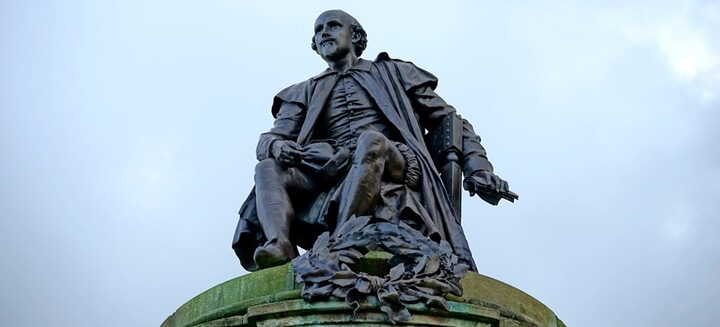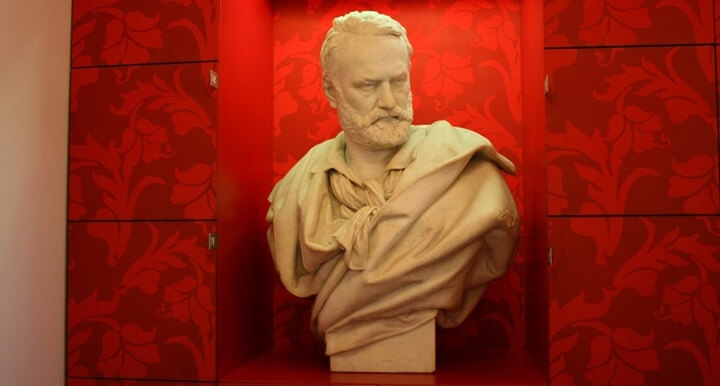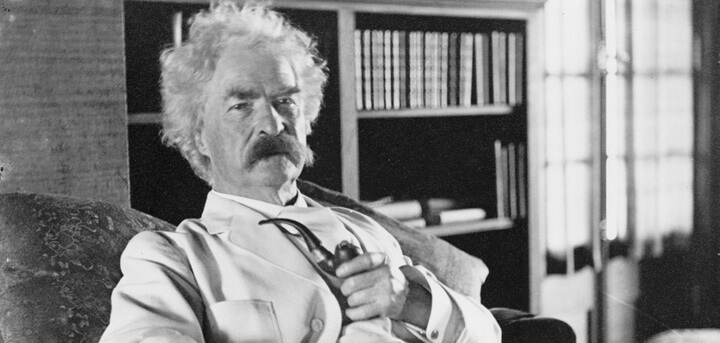Some of world’s most influential people in history have been writers. These authors have captured some of history’s greatest moments, creating records that have shaped social and political history and reflecting on an ever-changing world and the foibles of the human condition. A list all time best prose writers is always going to be subjective list of course, but here is our current list of the world’s best prose writers:

William Shakespeare (1564 -1616)
Best known for: King Lear, Romeo & Juliet, Hamlet
An English poet, playwright and actor, widely regarded as the greatest writer in the English language. Shakespeare wrote 39 plays, 154 sonnets, two long narrative poems and a few other verses. His plays have been translated into every major living language and are performed more often than those of any other playwright. His early plays were primarily comedies and histories, which are regarded as some of the best work ever produced of this type. He then wrote mainly tragedies including Hamlet, Othello, King Lear and Macbeth until about 1608, when he wrote tragicomedies.
Fyodor Dostoevsky (1821-1881)
Best known for: Crime and Punishment, Demons, The Idiot
A Russian novelist, short story writer, essayist, journalist and philosopher. Dostoyevsky’s works explore human psychology in the troubled times politically, socially and spiritually in 19th-century Russia. His work involves philosophical and religious themes. Dostoevsky wrote 11 novels, three novellas, 17 short stories and numerous other works that have influenced future authors both in and outside of Russia. Many literary critics rate him as one of the greatest psychologists in all world literature genres. His 1864 novella Notes from Underground is considered to be one of the first works of existentialist literature.
Leo Tolstoy (1828-1910)
Best known for: War and Peace, Anna Karenina, A Confession
Count Lev Nikolayevich Tolstoy was a Russian writer famous for his realist fiction. He first achieved literary acclaim in his twenties with his semi-autobiographical work. Tolstoy also wrote short stories, several novellas as well as plays and numerous philosophical essays. Tolstoy’s ideas on non-violent resistance, which he wrote about in The Kingdom of God Is Within You, were to have a profound impact on Mohandas Gandhi, Martin Luther King, Jr., and James Bevel.

Victor Hugo (1802-1885)
Best known for: Les Misérables, The Hunchback of Notre-Dame, Odes et Ballades
One of the greatest French writes, Hugo was a poet, novelist, and dramatist of the Romantic movement. Many of his works have inspired music, both during his lifetime and after his death, including the musicals Notre-Dame de Paris and Les Misérables. He also campaigned for social causes such as the abolition of capital punishment. Later in life Hugo became a passionate supporter of republicanism, after years of being a committed royalist, and his work touches upon most of the significant political and social issues and the artistic trends of his time.
Charles Dickens (1812-1870)
Best known for: Great Expectations, A Christmas Carol, Bleak House
An English writer and social critic, Dickens was famous in his own lifetime, giving lectures and performing readings. By the 20th century critics and scholars had recognised him as a literary genius for his realism, comedy, prose style, unique characterisations and social criticism, while others complained his work was sentimental and lacked psychological depth. Despite his lack of formal education, Dickens edited a weekly journal for 20 years, wrote 15 novels, five novellas, hundreds of short stories and non-fiction articles. His novels were mostly published in monthly or weekly instalments which kept readers in suspense and allowed him to modified his plot and character development based on feedback.
J. R. R. Tolkien OBE (1892-1973)
Best known for: The Lord of the Rings, The Hobbit, The Silmarillion
John Ronald Reuel Tolkien was an English writer, poet, philologist, and professor at Oxford University. Tolkien’s extensive notes and unpublished manuscripts, including The Silmarillion that were published after his death, together with The Hobbit and The Lord of the Rings, form a connected body of tales, poems, fictional histories, invented languages, and literary essays about a fantasy world called Arda and Middle-earth within it.
George Orwell (1903-1950)
Best known for: 1984, Animal Farm
Born Eric Arthur Blair, George Orwell was an English novelist, essayist, journalist and critic. His work is marked by lucid prose, awareness of social injustice, opposition to totalitarianism, and outspoken support of democratic socialism. His non-fiction works include The Road to Wigan Pier about his life in the north of England, and Homage to Catalonia about his experiences in the Spanish Civil War. It is thanks to Orwell that we have the terms Big Brother, Thought Police, Room 101, memory hole, newspeak, doublethink, proles, unperson, and thoughtcrime

Mark Twain (1835-1910)
Best known for: Adventures of Huckleberry Finn, The Adventures of Tom Sawyer
Born Samuel Langhorne Clemens, Mark Twain was an American writer, humorist, entrepreneur, publisher, and lecturer. He was to become known as the father of American literature. His short story The Celebrated Jumping Frog of Calaveras County was published in 1865 and brought international attention.
Edgar Allan Poe
Best known for: The Raven, The Tell-Tale Heart, The Cask of Amontillado
American writer, editor, and literary critic, Poe is best known for his poetry and short stories, particularly his tales of mystery and the macabre. Poe is generally considered the inventor of the detective fiction genre and helped the emerging science fiction genre.
Jane Austen (1775-1817)
Best known for: Pride & Prejudice, Sense & Sensibility, Emma
An English novelist known best for her six major novels, which interpreted, critiqued and commented on the English landed gentry at the end of the 18th century. Austen’s plots often explore the dependence of women on marriage for economic security and the pursuit of favourable social standing. Her works were published anonymously and gave a critique of the novels written in the second half of the 18th century, to become part of the transition to 19th-century literary realism. Her use of biting irony, along with her realism and social commentary, have earned her acclaim among critics and scholars.
